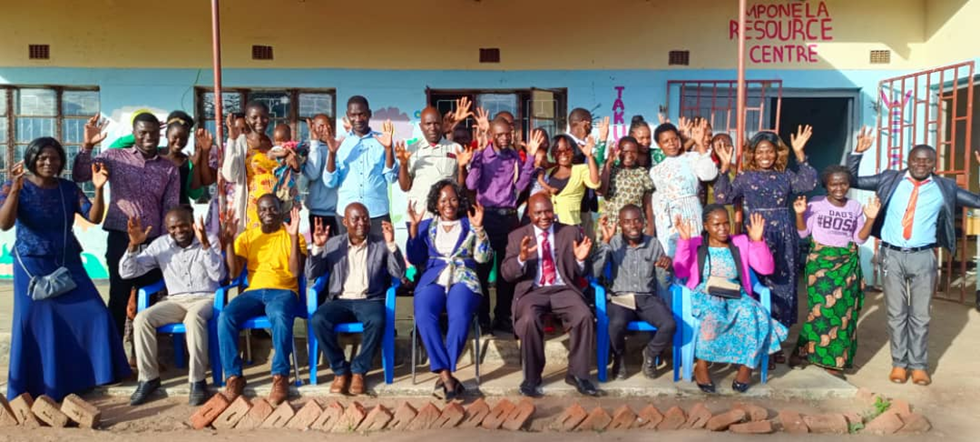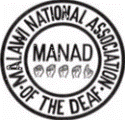From April 8 to 12, 2024, the Malawi National Association of the Deaf (MANAD) played a key role in a comprehensive Sign Language Training program organized by World Vision Malawi under the Able to Thrive Project. The training sessions targeted five districts: Dedza, Dowa, Ntchisi, Kasungu, and Mzimba, with the aim of enhancing the capacity of teachers to effectively communicate with Deaf learners in mainstream schools.
Training Overview
The training, conducted over five days, brought together approximately 100 participants from various districts. The sessions were held during the school break of the second term to accommodate teachers’ schedules. The districts and their respective training venues were as follows:
- Dedza: Dedza Government Lea TDC – 20 participants
- Dowa: Mponela Lea TDC – 25 participants
- Ntchisi: Boma TDC – 25 participants
- Kasungu: Chikankha TDC – 15 participants
- Mzimba: Bumba TDC – 15 participants
Objectives and Content
The primary objective of the Sign Language training workshop was to fulfill one of the key pillars of the Able to Thrive Project: enhancing the capacity of institutions and community structures to effectively respond to the needs of children with disabilities, including Deaf learners. Research has highlighted that Deaf students face significant communication barriers due to limited sign language skills among teachers. This intervention aimed to address these challenges by improving communication and integrating Malawi Sign Language (MSL) as an instructional language.
The training covered several crucial topics:
- Understanding Deafness: Causes of deafness and appropriate terminology for addressing Deaf learners.
- Deaf Culture: Strategies for adapting teaching methodologies and seating arrangements to align with Deaf culture.
- Inclusive Education: Concepts and best practices for implementing inclusive education.
- Sign Language Skills: Basic communication skills in sign language and practical usage of signs learned.
Training Delivery
The training was delivered by experienced Sign Language Facilitators from MANAD. The sessions utilized a variety of teaching methods to ensure effective learning:
- Presentations and Lectures: Focused on raising awareness about sign language, Deaf culture, and Deafness.
- Immersion Method: Sign language was used extensively as the language of instruction to facilitate learning.
- Participatory Techniques: Enabled participants to practice signs, correct each other, and engage in context-relevant discussions.
- Group Work and Laboratories: Provided opportunities for collaborative brainstorming and practical application of skills.
- Direct Methods: Facilitated hands-on learning and correction of signing skills.
- Role Play and Conversation Drills: Allowed participants to practice practical communication scenarios.
- Signs Drills: Focused on specific contexts, such as health settings, to reinforce sign language use.
Coordination and Supervision
The training program was coordinated by Chimwemwe, the Able to Thrive Senior Inclusive Education Project Manager, along with WVI Project Area Coordinators, MACODA District Representatives, and Mr. Sekerani Kufakwina from MANAD. Mr. Kufakwina served as the primary contact for coordinating with trainers and overseeing the training sessions across the centers.
The District Directors of Education, Youth, and Social Services (DEYS), or their representatives, officially opened the workshops, emphasizing the importance of the training in addressing the educational challenges faced by Deaf learners and supporting inclusive education practices.
MANAD’s involvement in this training underscores its commitment to enhancing the quality of education for Deaf students and fostering an inclusive learning environment in Malawi.

